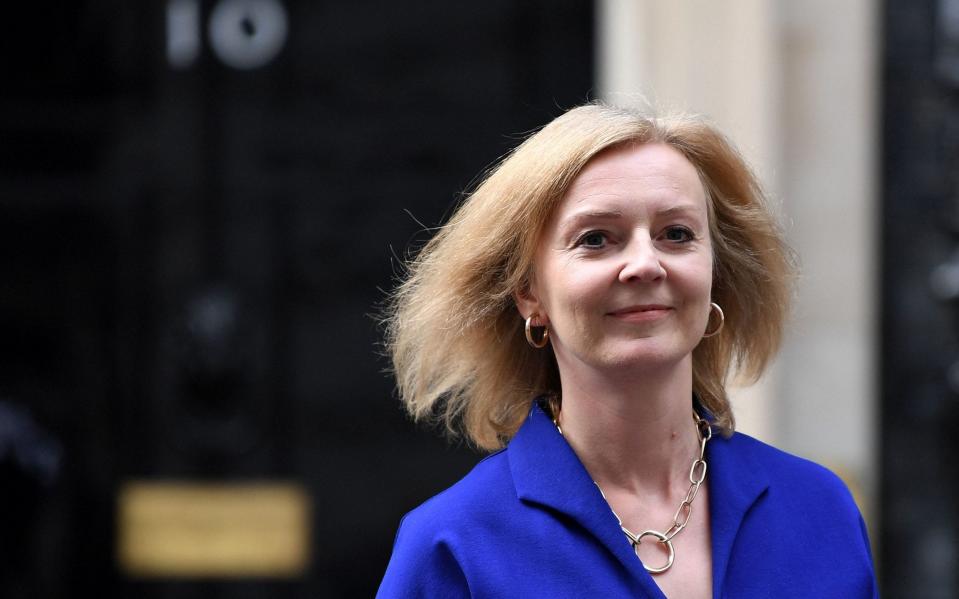Southern households win big from tax cuts as Truss shores up Blue Wall

Households in London and the South East are to be the biggest winners from the mini-Budget as Liz Truss scrambles to shore up support in the Tory heartlands.
The Resolution Foundation revealed that the Chancellor's huge tax cuts will provide a £1,600 increase to household incomes in London and the South East, compared to £500 in the North East, Wales and Yorkshire.
The think tank said the measures suggest the new Government has given up on courting Red Wall voters in the north, with the bulk of the stamp duty savings likely to accrue to southerners.
The tax bill of a first-time buyer in the capital, where Britain’s housing crisis is felt most, will fall by an average of £6,300 but those in the North East will not benefit at all.
Tory nerves over holding onto seats in the south have frayed after a string of by-election victories by the Liberal Democrats since the 2019 general election.
Polling has suggested a number of high-profile Conservative MPs, including Dominic Raab and Jeremy Hunt, risk losing their seats amid a backlash over a planning overhaul. However, reports suggest Ms Truss plans to shore up support in the southern Blue Wall to limit the threat.
Torsten Bell, chief executive of the Resolution Foundation, said: “Today’s Conservative Party is no longer fiscally conservative or courting the Red Wall, with debt on course to rise in each and every year, and its focus shifting South where the main beneficiaries of these tax cuts live.”
He said the package would boost growth in the short-term, but warned the Chancellor needs good fortune to make his “growth gamble fully pay off”.
“He rejected not just Treasury orthodoxy but also the legacy of Boris Johnson as a wholly new approach to economic policy was unveiled.”
Kwasi Kwarteng will ramp up borrowing to pay for the biggest tax cuts in 50 years as he hopes to spur growth. The Chancellor’s package included the abolition of the top rate of income tax, a cut in the basic rate, a reduction in stamp duty, the cancellation of the national insurance increase and the scrapping of the rise in corporation tax from 19pc to 25pc.
The Resolution Foundation said the richest households are the biggest winners from the package.
Two-thirds of the gains from personal tax cuts will go to the richest fifth of households, a £3,250 boost next year, while just 12pc of the gains will go to the poorest half. The think tank found that almost half of the personal tax giveaways will go to the top 5pc, a gain of more than £9,000.
The Treasury has estimated the package will cost £45bn by 2026-27, with the Government needing to sell an extra £72bn in gilts to fund the tax cuts. However, economists are nervous that the public finances will be damaged by borrowing to pay for the package.
The Resolution Foundation said £35bn of spending cuts would be needed by 2026/27 to have debt falling.
The Institute for Fiscal Studies (IFS) has warned that borrowing will be its third-highest level since the second world war, coming behind only the financial crisis and the pandemic. Under the plans, borrowing will remain high at over £110bn, or 3.9pc of GDP, by 2026-27, more than £80bn more than expected by the budget watchdog in March.
Paul Johnson, director of the IFS, said that the tax cuts were announced “without even a semblance of an effort to make the public finance numbers add up”.
He said: “Instead, the plan seems to be to borrow large sums at increasingly expensive rates, put government debt on an unsustainable rising path, and hope that we get better growth. This marks such a dramatic change in the direction of economic policy-making that some of the longer-serving cabinet ministers might be worried about getting whiplash.”
